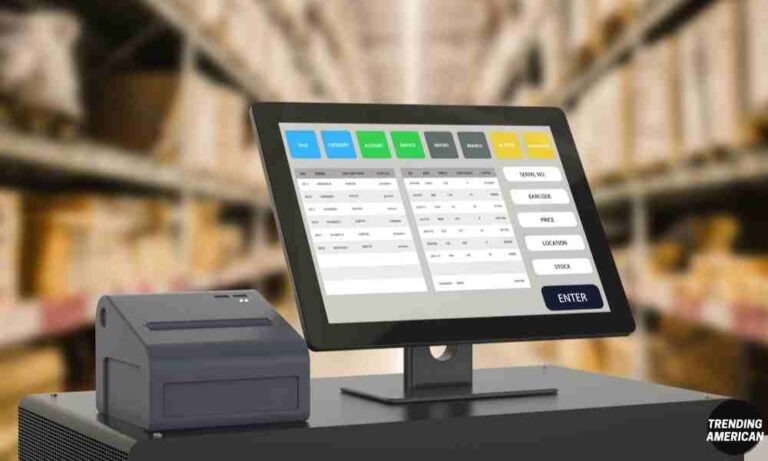Keeping Your Business Premises Secure 24/7: The Vital Importance and How-Tos
The importance of having secure business premises cannot be emphasized at a time when a company’s capacity to remain stable depends not only on its financial plans but also on its ability to protect its assets. A secure environment not only protects physical assets but also fosters a sense of trust among employees and clients alike. This blog post explores the vital importance of 24/7 security for your business and provides practical insights into achieving a robust security system.
The Foundation of a Secure Business: Comprehensive Access Control
Access control serves as the bedrock for a secure business environment. Implementing a comprehensive access control system ensures that only authorized personnel can enter specific areas, reducing the risk of unauthorized access. Utilizing modern technologies such as biometric scanners, key card access, and PIN codes adds an extra layer of security, making it more challenging for intruders to breach your premises. Regularly updating access credentials and conducting thorough background checks on employees contribute significantly to maintaining a secure and trusted workspace.
Illuminating the Path: Effective Lighting for Enhanced Security
Proper lighting is a subtle yet powerful deterrent against criminal activities. Well-lit areas not only discourage potential intruders but also enhance the effectiveness of other security measures. Strategic placement of lights around the premises, especially in entrances, parking lots, and vulnerable areas, contributes to a safer environment. Consider investing in motion-activated lighting for an added layer of surprise and deterrence. Adequate illumination not only protects against external threats but also aids surveillance systems in capturing clear footage, an essential aspect we’ll delve into shortly.
The Watchful Guardian: CCTV System for Unparalleled Surveillance
Deploying a CCTV system is an indispensable component of a comprehensive security strategy. Unlike standalone CCTV cameras, a monitored CCTV system involves real-time surveillance by security professionals. This not only acts as a deterrent but also ensures immediate response in the event of suspicious activity. Investing in high-resolution cameras and strategically placing them across the premises enhances visibility, making it easier to identify and respond to potential threats effectively.
Intrusion Prevention: Alarms and Sensors for Timely Response
Intrusion prevention stands as a cornerstone in fortifying business premises against potential security threats, and alarms and sensors emerge as stalwart guardians in this endeavor. These sophisticated devices serve as the vigilant eyes and ears of your security infrastructure, detecting any unusual activity and sounding the alarm at the first sign of a breach. Door and window sensors, motion detectors, and glass break sensors are strategically deployed to create an invisible barrier, ensuring that any attempt at unauthorized access triggers an immediate response. The audible alerts not only act as a powerful deterrent, dissuading potential intruders, but also serve as a rapid notification system for both on-site security personnel and local authorities. The integration of alarms and sensors into a centralized monitoring system enables a swift and coordinated reaction, minimizing the window of vulnerability and bolstering the overall effectiveness of the security apparatus. In essence, these devices are the unsleeping sentinels that transform mere physical space into a safeguarded sanctuary, embodying the proactive stance necessary for 24/7 intrusion prevention.
Human Element: Security Personnel and Training
The human element is a linchpin in the fortress of business security, and the role of security personnel is paramount in maintaining a vigilant and responsive environment. Trained security personnel stand as the first line of defense against potential threats, their watchful eyes and quick decision-making capabilities acting as a proactive deterrent. Well-trained security teams are equipped not only to assess and respond to security breaches but also to prevent them from occurring in the first place. Regular training sessions ensure that security personnel stay abreast of the latest security technologies and protocols, enhancing their effectiveness. Beyond their technical skills, security personnel also contribute to the overall safety culture within an organization. Their presence fosters a sense of security among employees and visitors, promoting a conducive atmosphere for business operations. In essence, the human element in security is not just about physical presence but a dynamic force shaping the security posture of the entire business premises.
Cybersecurity: Protecting Your Virtual Perimeter
Nowadays, protecting your company online is just as important as having physical locations, which is why cybersecurity should be a key part of your overall security plan. Your virtual perimeter, composed of networks, systems, and sensitive data, is constantly under the threat of cyberattacks. Implementing robust cybersecurity measures is akin to fortifying the walls of your digital stronghold. A multifaceted approach, including the deployment of advanced firewalls, regular software updates, and employee training on cybersecurity best practices, is essential. As hackers continually adapt their tactics, staying vigilant and proactive is paramount. The protection of sensitive digital information is not only about preserving your business’s integrity but also about maintaining the trust of clients and partners who rely on the secure handling of their data. In the interconnected landscape of modern business, prioritizing cybersecurity is an investment in the longevity and resilience of your enterprise.
Emergency Preparedness: Planning for the Unexpected
Emergency preparedness is the cornerstone of a resilient business, ensuring that the organization can navigate unforeseen challenges with a composed and effective response. From natural disasters to security breaches, having a well-thought-out plan in place can be the difference between chaos and control. A robust emergency preparedness strategy involves meticulous planning, regular drills, and clear communication channels. By proactively identifying potential risks and developing contingency plans, businesses can minimize downtime, protect their assets, and, most importantly, ensure the safety of their employees. Collaborating with local emergency services, regularly updating emergency contact information, and fostering a culture of preparedness among employees create a collective resilience that can withstand the unexpected twists and turns that the business landscape may present. Remember, when it comes to emergencies, the best offense is a well-prepared defense.
In conclusion, securing your business premises 24/7 requires a holistic approach that encompasses various aspects of physical and digital security. From access control and effective lighting to monitored CCTV systems and cybersecurity, each element plays a crucial role in creating a robust security infrastructure. Combining these measures with a well-trained security team and a comprehensive emergency preparedness plan ensures that your business remains resilient in the face of potential threats. Remember, investing in security is not just a protective measure; it’s an investment in the long-term success and stability of your business.







